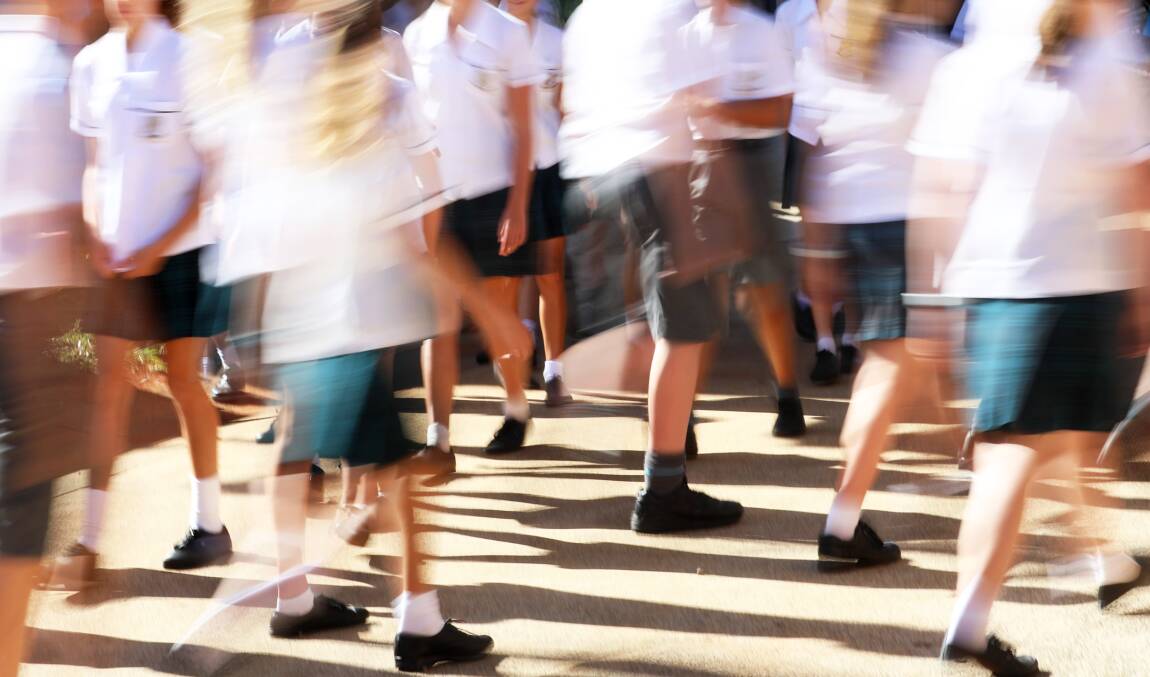
Teachers in Catholic systemic schools across the ACT and NSW will strike next week over what they say are unmanageable workloads and uncompetitive salaries.
Teachers will walk off the job on Friday, May 27, with rallies to be held across the major cities and regional centres.
Independent Education Union ACT/NSW branch deputy secretary Carol Matthews said members were calling for a pay increase of 10 to 15 per cent over two years and measures to reduce paperwork and face-to-face teaching time.
"I think it's just a perfect storm, which has been building up over a number of years, probably the last decade," Ms Matthews said.
"Teachers are really struggling at the moment. COVID has made that worse, but it's really common for classes to be combined, for large groups of children to be supervised in the hall and teachers to be moved from one class to another to try and cover absences in the best way possible, given that casual teachers can simply not be found."
There are 540 Catholic schools across 11 dioceses affected by the industrial action.
It will mean another pupil-free day for Catholic school students, on top of two additional teacher planning days this term to help teachers catch up on missed release time.
The enterprise agreement expired at the end of last year and limited progress has been made on key claims.
Catholic school employers in NSW have said they would stay in line with the NSW government pay cap of 2.04 per cent per year.
"In the ACT, the Catholic Diocese have said they'll do whatever the government does, but we don't know what the government is doing in the ACT so there's no pay offer," Ms Matthews said.
Catholic Education director of Canberra Goulburn Archdioces Ross Fox said he supported employees' right to take protected industrial action but was concerned about further potential disruption to students after the past two years.
"We have made significant progress in discussions to negotiate a new enterprise agreement for teaching and support staff, and believe that we can continue to do so without the added pressure of industrial action at this time," Mr Fox said.
Mr Fox said the archdiocese was continuing to work through the the implications of the industrial action to minimise disruptions to students and families.
He said the two extra planning days this term was a show of support for all teachers.
"We will of course continue to negotiate in good faith so that we can deliver an outcome that is fair and recognises the hard work and commitment of all staff," he said.
On top of COVID-19 related absences, schools are struggling to fill permanent teaching positions.
Ms Matthews said red tape and administrivia had built up over the years while salaries were not keeping up with other professions.
"It means that teachers don't encourage their own students and their own children to be teachers because there's a perception and an experience that the job is just becoming very, very difficult," she said.
"Parents are suffering if their child is not being taught by a teacher because one can't be found, and even in Canberra, which is hardly a remote area, permanent positions are unable to be filled.
"There really is a crisis in teaching. It's never been like this before. It's never been as bad as this before."
The union is calling for an extra two hours of release from face-to-face teaching per week, for any new initiative to have clear evidence behind it, and for the impact on teachers' workload to be reviewed.
Collecting data for accountability and public liability purposes is robbing teachers of time to do lesson planning and marking, while the needs of students are becoming ever more complex.
"There's a lot of fast-moving changes in pedagogy and teaching theory ... but every time there's a new theory and a new way of doing things it gets loaded onto the teacher to try and make that work. And many of the existing projects still continue in place," Ms Matthews said.
"Employers and government really need to look at: what are they requiring, and what is actually doable from the point of view of the teachers?"
NSW public school teachers went on strike earlier this month after negotiations with the NSW government stalled.
We've made it a whole lot easier for you to have your say. Our new comment platform requires only one log-in to access articles and to join the discussion on The Canberra Times website. Find out how to register so you can enjoy civil, friendly and engaging discussions. See our moderation policy here.







